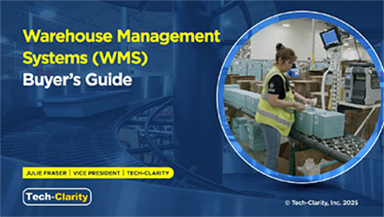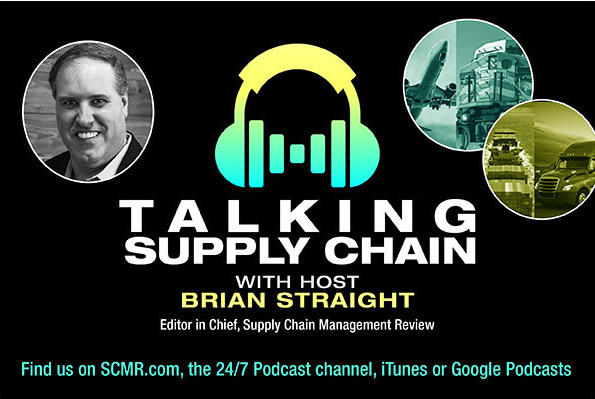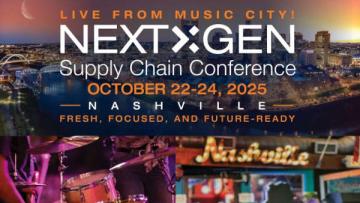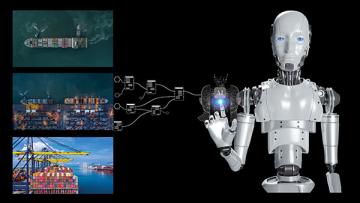The faculty at the University of Tennessee, Knoxville, College of Business Administration, are on the cutting edge of supply chain research and have several books in the works that demonstrate their expertise.
They closed out 2011 with two published books, with another five to be printed this year.
“It is rare to find a group of supply chain faculty in one educational institution worldwide whose research is being published so prolifically,” said Ted Stank, UT supply chain management professor and Bruce Chair of Excellence. “Research topics cover the supply chain gamut, from transforming a supply chain to regional supply chain differences, and from building lean supply chains to Vested Outsourcing.”
Here is a description of the seven books, including working title, authors and short synopsis.
• “Building Lean Supply Chains with the Theory of Constraints” by Mandyam Srinivasan, The University of Tennessee (November 2011).
This book integrates the Theory of Constraints (TOC) with Lean, illustrating how these two philosophies complement and reinforce each other to create the smooth flow of goods and services through the supply chain.
• “The Vested Outsourcing Manual: A Guide for Creating Successful Business and Outsourcing Agreements” by Kate Vitasek, The University of Tennessee; Jacqui Crawford; Jennette Nyden; and Katherine Kawamoto (late 2011).
The authors have developed a roadmap through which each party has an interest in mutually defined and desired outcomes. Vested Outsourcing methodology is built on a framework that lays the structure for parties to come together and create a shared vision, foster an anticipatory lens, share evolving expertise, manage change and the required behavior to drive innovation and mitigate risk.
• “Transforming Your Supply Chain” by J. Paul Dittmann, The University of Tennessee (July 2012).
This book is for organizations that need a transformational supply chain strategy and who may be chasing only the latest trend.
• “Vested: How P&G, McDonald’s and Microsoft are Redefining Winning in Business Relationships” by Kate Vitasek, The University of Tennessee; Karl Manrodt, Georgia Southern University; and Jeanne Kling (September 2012).
Using principles of Vested Outsourcing, the authors recount their work with some of the world’s leading companies and how they’ve helped them create vested agreements with their suppliers and develop relationships that have sparked innovation, improved service and reduced costs.
• “Supply Chain Management in a Transforming World” by Chad W. Autry, The University of Tennessee; Thomas J. Goldsby, The Ohio State University; and John E. Bell, The University of Tennessee (late 2012).
This book adopts a forward-thinking perspective on the challenges facing supply chain managers in the foreseeable future. It addresses existing and emerging global supply chain management issues of the next 25 years in light of emerging societal, technological, geopolitical and environmental “macrotrends.”
• “Global Supply Chain Management: A Regional Approach” by Philippe-Pierre Dornier, ESSEC Business School; Kenneth J. Petersen, Mandyam M. Srinivasan and Theodore P. Stank, The University of Tennessee (December 2012).
The book identifies four key characteristics of the global supply chain environment, including elements of economics, politics, infrastructure and business competency. It assesses the maturity of these characteristics in countries from eight distinct regions of the world, including North America, South America, Western Europe, Central and Eastern Europe, The Middle East, East Asia, South Asia and Africa.
• “Lean MRO: Changing the Way You Do Business” by Mandyam M. Srinivasan, Kenneth C. Gilbert and Melissa R. Bowers, The University of Tennessee (December 2012).
This book will help suppliers and customers in the maintenance, repair and overhaul (MRO) industry manage their businesses more effectively. It presents cutting-edge process improvement techniques based on systems thinking. It also integrates the two management philosophies of the Theory of Constraints (TOC) and Lean and shows how incorporating these in MRO activity can improve an organization’s bottom line.
For more information on these books, visit http://bus.utk.edu/cba/news_articles/2012/scbooks.asp.
For more information on books that have been authored or co-authored by current UT faculty, visit http://quest.utk.edu/books/.
SC
MR

Latest Supply Chain News
- From flight decks to fulfillment: A veteran’s supply chain journey
- Employee versus enterprise AI adoption
- Uber Freight’s Val Marchevsky to deliver Keynote at NextGen Supply Chain Conference
- Unlocking the green grid: Innovations for eco-friendly last mile
- Dealing with supply chain complexities with scenario intelligence
- More News
Latest Resources

 Explore
Explore
Latest Supply Chain News
- C.H. Robinson rolls out AI agent to address LTL classification overhaul
- Danone latest to announce new US investment
- From flight decks to fulfillment: A veteran’s supply chain journey
- Employee versus enterprise AI adoption
- Uber Freight’s Val Marchevsky to deliver Keynote at NextGen Supply Chain Conference
- Unlocking the green grid: Innovations for eco-friendly last mile
- More latest news
Latest Resources

Subscribe

Supply Chain Management Review delivers the best industry content.

Editors’ Picks




